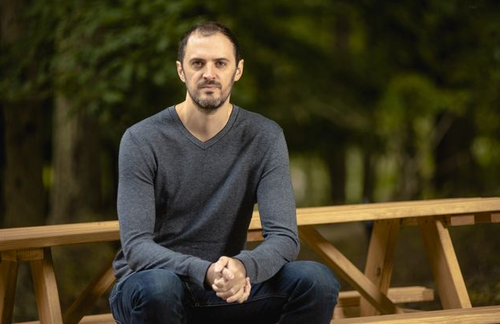Short-Seller Hindenburg Research Tips Off Regulators On Ponzi Scheme, Leading To Las Vegas Shootout
Short seller Hindenburg Research, best known for its scathing report on Nikola that helped catalyze the indictment of CEO Trevor Milton, has found itself in the middle of a different kind of fraud. And instead of indictments, this one has led, so far, to a gunfight.
That was the takeaway from a new Wall Street Journal piece which highlighted the well known short seller as helping along regulatory efforts to stop an alleged ponzi scheme taking place primarily in Nevada and Utah.
The alleged $300 million scheme, run by a lawyer named Matthew Beasley, came to a head when FBI agents went to his home earlier this month and Beasley drew a gun on himself, before pointing it at agents, prompting them to shoot him.
Nathan Anderson of Hindenburg Research
Agents shot him twice after he brandished his weapon, the report says, and the FBI brought in a hostage negotiator and SWAT team that eventually got Beasley out of his home alive. Beasley confessed during the confrontation to running the ponzi scheme and, while he hasn’t been charged with financial crimes yet, faces initial charges of assaulting a federal officer resulting from brandishing his weapon.
“Individuals allegedly put in hundreds of millions of dollars” into his scheme, which purported to deal in “high-reward, low-risk contracts to fund loans tied to personal-injury lawsuits through two companies, J&J Purchasing and J&J Consulting Services,” according to the Wall Street Journal.
From there, “money was wired to a bank account controlled by Mr. Beasley’s law firm”.
And it looks like stringent “know your customer” and “anti-money laundering” rules apply only to peon Uber drivers trying to cash their meager $600 paychecks using Venmo and Paypal, because Beasley and the companies’ president, Jeffrey Judd, were able to buy “a private jet, millions of dollars worth of real estate in Nevada and Utah and top-end cars including a Rolls-Royce Dawn, two Bentley Continental GTs, a Porsche Taycan, an Aston Martin Vantage and a $500,000 RV” – all while staying under the radar of regulatory agencies.
Hidden camera from Hindenburg’s sting operation with J&J marketers
But they didn’t stay off the radar of Hindenburg’s Anderson, who told the WSJ that, after being tipped off an examining the scheme, it was “the most obvious Ponzi scheme we’ve ever seen.” Hindenburg researched the alleged scheme and then “filed a whistleblower complaint with the Securities and Exchange Commission, putting it in line to get paid if the government collects a significant penalty,” the WSJ wrote.
Anderson’s firm published a detailed report of their research on the scheme last week that can be found here. His firm, meeting with Beasley and Judd’s firm undercover, as potential clients, was told the contracts provided “a 12.5% payout after a loan was repaid in 90 days. They were sold as risk-free.”
Hindenburg even wired a private jet with microphones and cameras to arrange a meeting with J&J marketers on a tarmac near Las Vegas. “You know, we’ve had some people say it’s a Ponzi scheme,” one of the alleged scheme’s marketers said to a Hindenberg associate at one point.
A majority of investors in the scheme were “Mormons living across the Western U.S.”
Tyler Durden
Sat, 03/26/2022 – 14:00

